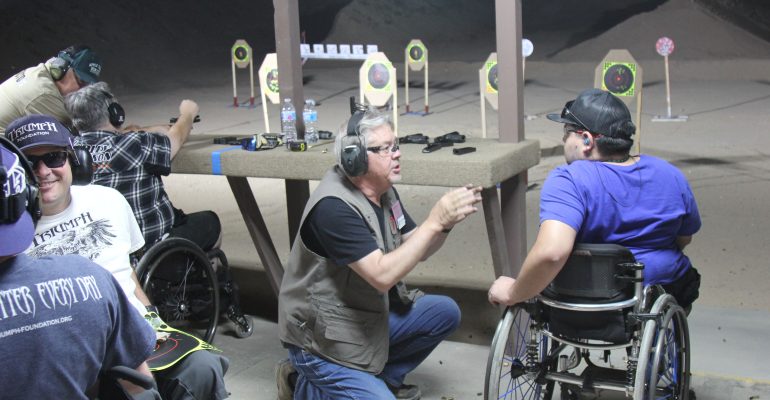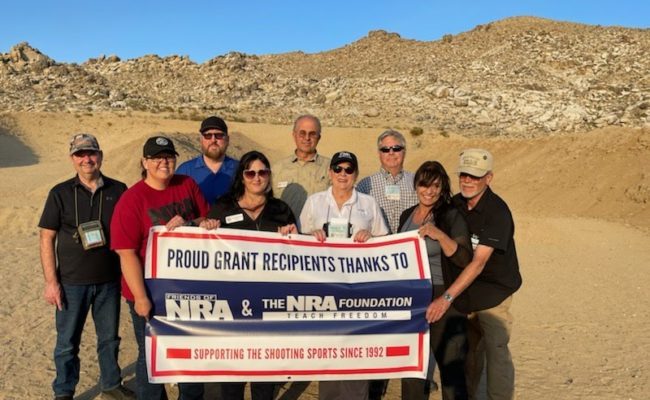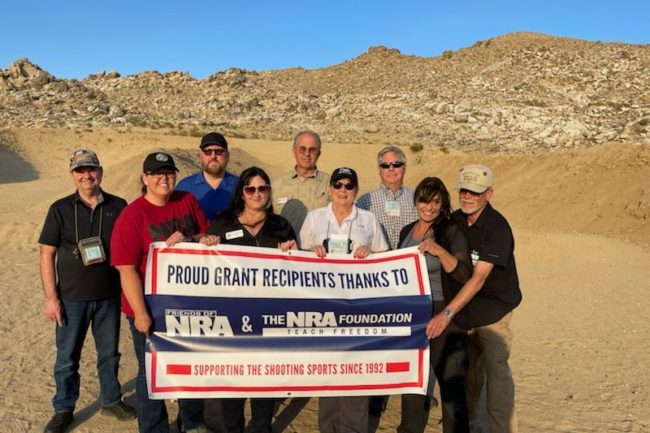March 2022 Legislation/Litigation Update
Focus for March:
Starting July 1, 2022, anyone purchasing “precursor parts”, which may be made into a firearm, will have to purchase them from, or conduct private transfers through, a state licensed dealer. Residents of California will not be able to bring precursor parts obtained in another state into California; they must be delivered to a licensed dealer. There will be specific licenses for precursor parts dealers. Precursor parts may also be purchased from a state licensed firearm or ammunition dealer. The process requires an eligibility check essentially the same as currently used for ammunition. There is no waiting period.
Precursor parts may not be transferred to anyone under 21, starting July 1. Anyone prohibited from owning a firearm will also be prohibited from owning precursor parts.
California Penal Code section 30400 to 30425
https://leginfo.legislature.ca.gov/faces/codes_displayText.xhtml?lawCode=PEN&division=10.&title=4.&part=6.&chapter=1.5.&article=1.
There has been a lot of confusion and bad information about what constitutes a “precursor part”, due to other bills which would have included a lot more parts, but did not pass. The bill that passed and established the definition includes only partially finished receivers, frames, and equivalent, which are finished 80% or less.
Note that a receiver or frame more than 80% complete (finished lower, stripped lower, finished frame, etc.) is considered a firearm under state and federal regulations and there will be no change in their purchase.
California Penal Code section 16531 says:
(a) As used in this part, “firearm precursor part” means a component of a firearm that is necessary to build or assemble a firearm and is described in either of the following categories:
(1) An unfinished receiver, including both a single part receiver and a multiple part receiver, such as a receiver in an AR-10- or AR-15-style firearm. An unfinished receiver includes a receiver tube, a molded or shaped polymer frame or receiver, a metallic casting, a metallic forging, and a receiver flat, such as a Kalashnikov-style weapons system, Kalashnikov-style receiver channel, or a Browning-style receiver side plate.
(2) An unfinished handgun frame.
(b) The Department of Justice, consistent with this section, shall provide written guidance and pictorial diagrams demonstrating each category of firearm precursor part specified in subdivision (a).
(c) Firearm parts that can only be used on antique firearms, as defined in subdivision (c) of Section 16170, are not firearm precursor parts.
(d) A firearm precursor part is not a firearm or the frame or receiver thereof. A firearm precursor part that is attached or affixed to a firearm is not subject to the requirements of Chapter 1.5 (commencing with Section 30400) of Division 10 of Title 4 of Part 6 or Section 18010.
California Penal Code Section 16531
https://leginfo.legislature.ca.gov/faces/codes_displaySection.xhtml?lawCode=PEN§ionNum=16531
Firearm Precursor Part Identification Guide
https://oag.ca.gov/system/files/media/ppdg-doc-inc-ref-bof-pub-0022.pdf
Legislation
Senate Bill 906: School safety: mass casualty threats: firearm disclosure
This bill would require the parents or guardians of a pupil to disclose whether any firearms are located at the home of the pupil and to answer questions about the ownership, storage, and accessibility by the pupil of the firearms.
This bill was introduced and read the first time on 2 February, 2022. It has been fast-tracked to the Senate Education and Public Safety committees. Set for hearing March 23.
To read SB906
Senate Bill 915 Firearms: state property
Since the “no gun shows on state property” bill last session was eventually amended to only apply to Orange County, this is a new one to again try to make the ban statewide. This bill has been fast-tracked to the Senate Education and Public Safety committees. A hearing was held March 8 in the Public Safety Committee, who voted 4 to 1 to forward with a “Do pass” recommendation and referred to the Appropriations committee.
To read SB915
Assembly Bill 311 Firearms: Del Mar Fairgrounds
Prohibit guns shows and sale of firearms, ammunition, and firearm precursor parts at the Del Mar Fairgrounds. Passed by the Assembly and now in process in the Senate.
Assembly Bill 2552 Firearms: gun shows and events
This bill increases signage requirements for gun show organizers, increases paperwork for gun show vendors, and bans the sale of black powder, unfinished receivers, unfinished frames, and conversion kits designed to convert a handgun into a short barreled rifle or assault weapon at gun shows. Vendors also will be prohibited from inciting or encouraging hate crimes.
Assembly Bill 1769 Firearms: prohibited places
This bill would prohibit the sale of firearms, firearm precursor parts, and ammunition at the Ventura County Fair and Events Center. Referred to the Public Safety Committee.
Senate Bill 1327 Firearms: private rights of action
This bill would create a private right of action for any person against any person who, within this state, manufactures or causes to be manufactured, distributes, transports, or imports into the state, or causes to be distributed or transported or imported into the state, keeps for sale or offers or exposes for sale, or gives or lends any firearm lacking a serial number required by law, assault weapon, .50 BMG rifle, or firearm precursor part, subject to certain exceptions, as specified. This bill was introduced in the Senate February 18, and fast-tracked the same day. Referred to committees on Judiciary, Public Safety, and Appropriations.
AB-1594 Firearms: civil suits.
Existing law defines a public nuisance and provides that a public nuisance may be remedied by an indictment or information, a civil action, or abatement. Existing law also regulates the manufacture, sale, and marketing of firearms. This bill would specify that a gun industry member has created or maintained a public nuisance, as defined, if their failure to follow federal, state, or local law caused injury or death or if the gun industry member engaged in unfair business practices. Referred to the Judiciary Committee.
Senate Bill 1386 Firearms: concealed carry licenses
Existing law authorizes the sheriff of a county, or the chief or other head of a municipal police department, if good cause exists for the issuance, and subject to certain other criteria, to issue a license to carry a concealed handgun or to carry a loaded and exposed handgun, as specified.
This bill would instead require the sheriff of a county, or the chief or other head of a municipal police department, if good cause exists for the issuance, and subject to certain other criteria, to issue a license to carry a concealed handgun or to carry a loaded and exposed handgun.
Introduced by Senator Melendez on February 18, and fast-tracked the same day.
Assembly Bill 1769 Firearms
This bill would remove the microstamping requirement for a firearm to be included on the handgun roster and would remove the requirement for the department to remove 3 firearms from the roster for each new firearm added. Introduced January 24 and may be heard February 24. Referred to the Public Safety Committee.
Note, to find current and reliable information on any bill before the California legislature you can go to: https://leginfo.legislature.ca.gov/faces/home.xhtml
Litigation
Duncan v Bonta: The Ninth Circuit Court of Appeals En Banc panel has overturned the district court ruling that found the California “Large Capacity Magazine” ban unconstitutional. The lawsuit challenges the ban of possession of large capacity magazines that was approved by California voters in Prop 63. Enforcement of the ban was stayed, pending disposition of a petition for certiorari filed with the Supreme Court.
Renna v Bonta on the California handgun roster is being considered for certiorari by the Supreme Court. Four justices are needed for the court to hear a case.
Bianchi v Frosh has been appealed to the Supreme Court and will also be considered. This suit challenges the Maryland ban on “assault weapons”. This case has also been distributed for review to the justices and will be considered for certiorari.
Doe v Bonta is a new lawsuit filed by the NRA to block the release of gun owner’s personal information to UC Davis and other, unspecified, “research organizations”. Information has already been given to UC Davis.
Respectfully submitted,
David Smith






